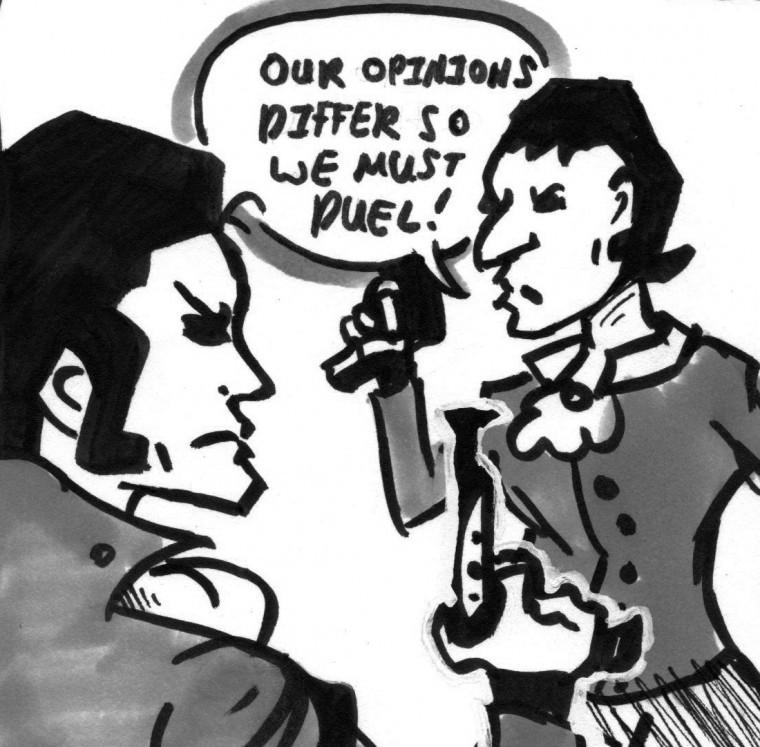The political climate is not that heated
January 30, 2011
The Tucson shootings left the question of motive unanswered.
Many media outlets suggested that the accused shooter, Jared Loughner, had a political axe to grind. Many outlets questioned if Washington’s heated political discourse was too much.
After a discussion with Thomas Oates, assistant professor of journalism, it became clear that maybe our political discourse is not overly heated after all, and if it is, maybe that is not such a bad thing.
If you compare today’s debates and congressional hearings with the temperament of early America, you can see how far we have really come. Although they wore powdered wigs and stuck their pinkies out while sipping on tea, they could get as nasty as UFC fighters.
In 1856, for example, Sen. Charles Sumner, R-Mass.,, an abolitionist, gave a speech mocking Sen. Andrew Butler, D-S.C., for a physical handicap and for embracing slavery. Yes, one grown man basically pointed and laughed at another grown man for being handicapped; just picture that today.
On top of that, Rep. Preston Brooks, D-S.C., a relative of Butler and pro-slavery politician, was so mad and insulted by the speech that he approached Sumner in the Senate chamber and beat him with his cane.
Another more famous example is when Aaron Burr and Alexander Hamilton were in such political and personal disagreement that when Hamilton denounced Burr’s character in an election campaign, the two settled it over a duel. Burr shot Hamilton, who died from the wound the next day.
I think we’ve come a long way since these barbaric times, but it is not that the debates are no longer heated. Self-control in these discussions is so necessary because the heated nature of debate is a fundamental part of democracy.
Oates pointed out that dissent and angry disagreement is probably a permanent feature of a democratic society. If we want to live in one, we have got to learn how to deal with it.
In his State of the Union address, President Barack Obama touched on the beauty of our ability to have arguments, disagree and nit-pick at every single detail of a bill or proposed plan; whereas other governments without these freedoms can build a train as soon as they want one, we have to discuss it.
The downside of this extensive freedom is that it makes our government less efficient and unable to accomplish things quickly.
“Democracy is not a question of efficiency, it is about justice,” Oates said. “Don’t assume that there is a problem with discourse.”
As frustrating, contentious and prolonged as it may get, I want to thank my government for taking the time to meticulously plan out my future and not rushing to make what could be the wrong decision.
What citizens can do to help our government help us is stay patient and become as educated as possible.
“Democracy demands so much from education,” Oates said. “It assumes a level of literacy.”
Don’t allow there to become a separation between us and our representatives. If we can help intelligently discuss these issues ourselves, we may recognize just how much we agree on, and ease up their jobs in Washington.



